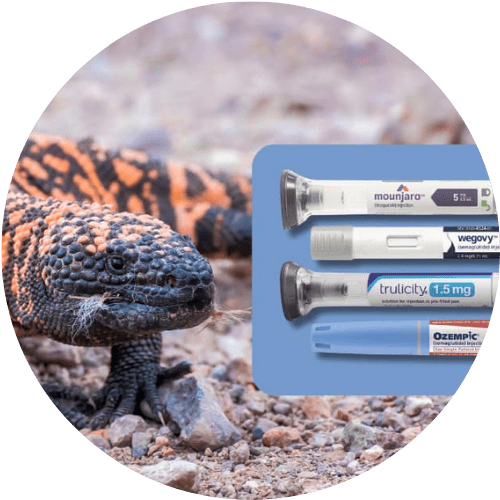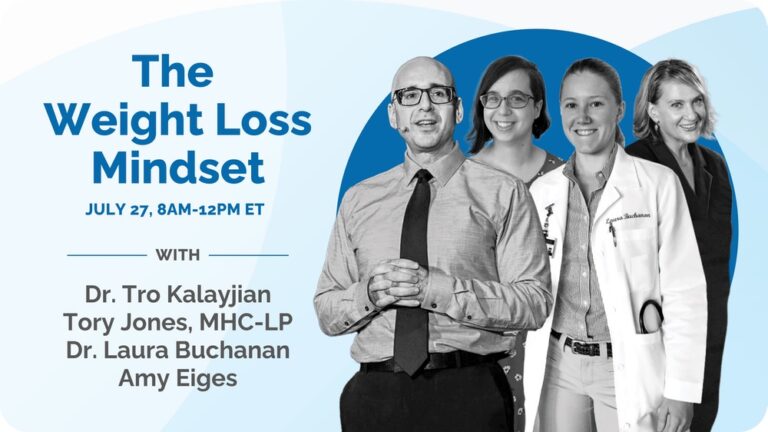Last week’s online group coaching meeting (August 31), hosted by Dr. Tro’s Medical Weight Loss & Direct Primary Care, continued its discussion around metabolic health. Dr. Tro Kalayjian shared studies with participants about appetite-suppressing hormones. The effects of a low carbohydrate ketogenic diet on hunger were also explored.
Dr. Tro, Amy and Brian then focused the meeting on their personal experiences dealing with stressful eating situations and the defenses used in our modern, hyperpalatable, and over abundant food environment. By combining these strategies with a low carb diet, hunger and cravings are kept in check. Hosts and participants also shared some patterns that have prompted overeating, including visiting places previously associated with binging. Other situations that are common triggers include coming home from a long day at work, visiting your childhood home, holidays, social gatherings and eating by the clock.
The following studies were shared during the meeting:
- This study that shows the effects of the low carbohydrate diet on food cravings, hunger, restraint, disinhibition. Of note, those who had more improved glucose variability experienced greater drops in their hunger and cravings. https://pubmed.ncbi.nlm.nih.gov/31878131/
- A great study that showed that weight loss led to a reduction in postprandial CCK secretion, a hormone that induces satiety. Interestingly wever, when subjects were ketotic (elevated circulating β-hydroxybutyrate concentrations), CCK secretion was sustained at concentrations before weight loss. https://doi.org/10.1093/ajcn/87.5.1238
- A low-fat diet reduced peptide YY more than a low-carbohydrate diet. These findings suggest that satiety may be better preserved on a low-carbohydrate diet, as compared to a low fat diet. https://pubmed.ncbi.nlm.nih.gov/26803589/
- The increases in circulating ghrelin and subjective appetite which accompany dietary weight reduction were mitigated when weight-reduced participants were ketotic. Meaning that patients who were ketotic had reduced and not increased grehin, the hunger hormone, leading to decreased hunger. https://pubmed.ncbi.nlm.nih.gov/23632752/
If you’re interested in registering or learning more, please visit our Group Coaching page.






